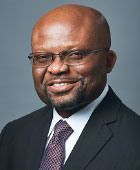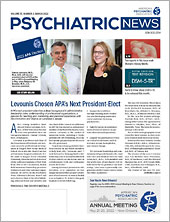In stunned disbelief, I watched clips of the Florida Senate confirmation hearing of Dr. Joseph Ladapo, a Harvard trained M.D., Ph.D., for surgeon general of Florida in January. Dr. Ladapo’s nonresponse to questions about the effectiveness or lack thereof of the COVID-19 vaccine was striking. Given his educational and research pedigree, it is understandable that his public proclamations on medicine and public health would hold sway with the unsuspecting public.
Notably, physicians, including psychiatrists, who are publicly spreading disinformation about public health measures against COVID-19 including vaccines are small in number but loud. Their comments have contributed immensely to vaccine hesitancy and other negative responses to public health measures with deadly consequences. This is unconscionable and unethical. Their publicly stated positions violate at least three (maybe four) of the nine AMA’s Principles of Medical Ethics: Principles II, V, VII, and VIII (see box).
Sadly, it took professional medical associations months to address this dangerous situation. In July 2021, the Federation of State Medical Boards (FSMB), the national organization representing all U.S. state medical boards, warned that dissemination of COVID-19–related disinformation by doctors will not be tolerated. In September 2021, the APA’s Ethics Committee
issued an opinion condemning psychiatrists who spread misleading information about COVID-19.
The AMA followed suit in November 2021 when it held a special meeting “to combat public health disinformation spread by health professionals, based on the tremendous risks posed to our patients as well as the credibility of physicians as trusted sources of accurate, evidence-based information.” The AMA subsequently urged state medical boards “to respond promptly to physicians whose conduct has been called into question for spreading falsehoods, particularly those related to COVID-19, in keeping with FSMB recommendations.”
But referrals to state medical boards are fraught with challenges. For one, the composition of state medical licensing boards is not uniform across the country, and the number and specialty of physicians on them vary. A recent study showed that more than half of public members for all state medical boards have no measurable medical experience or background, including in patient safety, according to Doug Wojcieszak, M.A., M.S., in the November 1, 2021, Journal of Patient Safety and Risk Management.
State medical boards are often not proactive at seeking out erring physicians but rather respond to complaints, thereby placing the onus on others to report. Further, state medical board decisions can be influenced by state legislation, some of which could dramatically undercut the decision-making authority of the board. As a result, the outcome of investigations for the same issue may differ depending on the state. Not surprisingly, only eight physicians were sanctioned in one year with suspension or revocation of licenses, according to an article in Becker’s Hospital Review posted February 1.
On a positive note, APA enforces its ethics. After a comprehensive ethics investigation process, an erring psychiatrist could face a reprimand, suspension, or expulsion from the Association. While reprimand is confidential, the latter two are publicized and include reporting the member to the state medical licensing board and the National Practitioner Data Bank, which places the member’s license to practice medicine at risk. APA’s use of extrinsic evidence to commence an investigation is invaluable as it does not require a formal complaint by patients or concerned citizens for an ethics investigation to commence. Relying on patients alone to bring a complaint to a state medical board or to an ethics committee is unsatisfactory as they frequently do not report ethics violations.
It is imperative that subspecialty medical associations emulate APA and enforce their ethics. However, APA ethics, like those of other subspecialty medical organizations, apply only to members of the association.
Importantly, non-APA members, and indeed all physicians practicing in the United States who are not members of the AMA or a medical subspecialty association, may evade sanctions of an ethics committee. The only option available to hold them accountable is referral to a state medical board with all the inadequacies described earlier. This is an unfortunate loophole. A robust uniform ethics enforcement process would send a strong statement and a cautionary note to all physicians that they will be held accountable for ethics breaches. Outsourcing this crucial function to a third party whose rules may differ across the country is likely to generate unequal and potentially discriminatory outcomes. ■
“Consumer Background and Composition on State Medical Boards: Who Are These Citizen Members, and Do They Adequately Protect the Public?” is posted
here.
“Medical Boards Disciplined 8 Physicians in 1 Year Over Misinformation” is posted
here.
The opinions expressed in this column are Dr. Dike’s and do not necessarily represent those of APA or its Ethics Committee.

